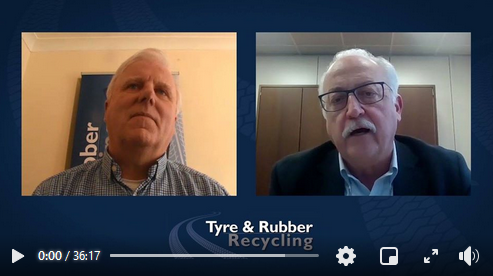The use of modified asphalts is growing. This year it has recorded a +63% compared to 2019. Modified asphalts resist potholes, they last 3 times longer than traditional asphalts, and they reduce noise and maintenance costs. All this using recycled materials.
When an innovation brings concrete benefits, its spreading knows no limits. And the figures confirm it. According to the data supplied by Ecopneus, as of today, about 600 km/lanes of roads have been created with the use of asphalts modified with rubber recycled from ELTs in Italy – a distance that could cover the distance from Rome to Milan.
 Asphalts modified with the addition of recycled rubber are an innovative and advantageous solution. Known for over 60 years all over the world, this technology is growing in Italy too. Indeed, Italy went from a little more than 100 km in 2010 to 592 km at the end of 2020. This is a 63% increase compared with 2019. In Italy, already 42 Provinces have chosen to use this valid technology: Emilia-Romagna, Tuscany, Piedmont and Trentino Alto- Adige are the regions where the most meaningful experiences have been made.
Asphalts modified with the addition of recycled rubber are an innovative and advantageous solution. Known for over 60 years all over the world, this technology is growing in Italy too. Indeed, Italy went from a little more than 100 km in 2010 to 592 km at the end of 2020. This is a 63% increase compared with 2019. In Italy, already 42 Provinces have chosen to use this valid technology: Emilia-Romagna, Tuscany, Piedmont and Trentino Alto- Adige are the regions where the most meaningful experiences have been made.
A positive trend that confirms the maturity of this sector, especially if we look back at last year, when the difficulties and the restrictions linked to the Covid-19 pandemic caused a general contraction of the majority of sectors.
Indeed, as of today, asphalts modified with recycled rubber represent one of the most interesting solutions for the Public Administrations and the Bodies administering the Italian road network. Indeed, this technology allows a better spending of the financial resources for road infrastructures, reducing users’ inconvenience, the environmental impact of the structure being built, and the costs linked to road maintenance. Indeed, there are several advantages linked to the use of modified asphalts: up to 5dB reduction of the noise generated by passing vehicles, and they last up to 3 times longer than conventional asphalts. This is due to their greater resistance to use and the creation of cracks and potholes. As a consequence, all this allows also a reduction of maintenance costs in the medium-long term.
The General Manager of Ecopneus, Giovanni Corbetta, declared: “The results obtained are encouraging us to carry on in this direction. As Ecopneus, in the course of the years, we have put great effort in raising the awareness of this valid application of recycled rubber. We have activated and supported several scientific studies and initiatives, such as the Life Nereide Project, which is co-financed by the EU. For 2021, we hope for an increasing diffusion of this technology, also thanks to the entering into force of the new End of Waste Decree. This Decree will provide an important support to increase the quality of the materials recycled from ELTs. Also many important national organisations are paying greater attention to this technology.”
Indeed, the use of rubber powder recycled from End-of-Life Tyres allows to produce asphalts that are able to combine high-level mechanical performances with positive effects for society with reference to noise reduction and environmental sustainability, thanks to the use of rubber powder recycled from ELTs. Precisely for these reasons, a recent intervention with modified asphalts in the Pavese province has been funded by the Cassa Depositi e Prestiti, that has recognised the technological and environmental value of this solution.

 Collect ELT
Collect ELT